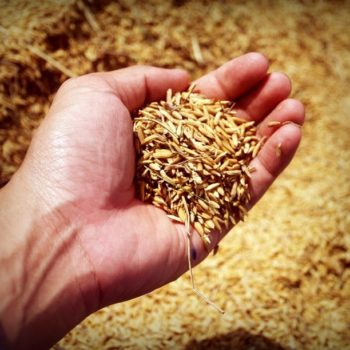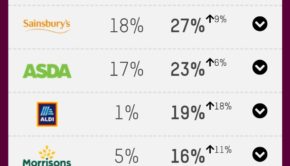Oxfam takes aim at inequality in supply chain

Oxfam has published a report that takes aim at the world's biggest supermarkets and food manufacturers, stating that millions of workers in their supply chains are living below the poverty line while the companies enjoy ever-growing profits.
22 June 2018
A new report by Oxfam has addressed the policies of some of the world’s biggest supermarkets, alleging that millions of men and women who produce the food we eat are trapped in poverty and face brutal working conditions despite billions of dollars in profits.
The report, titled Ripe for Change, reveals that some of the industry’s biggest names in Europe and the USA scored poorly on issues such as treatment of workers and producers in supply chains.
Among the findings, the 120-page report found:
- Supermarkets keep an increasing amount of customers’ money – up to 50% in some cases – while gradually reducing the share going to workers and producers, sometimes as low as 5%.
- Farmers and workers in the production of 12 common items such as tea (India) and green beans (Kenya) are sometimes earning as low as less than half of what is needed to ensure a “basic but decent” standard of living.
- In 2016, shareholders in the eight largest supermarkets were paid $15bn, just ten percent of which would be enough to lift 600,000 shrimp processors in Thailand into a living wage.
Winnie Byanyima, executive director of Oxfam International, said these injustices simply should not be on store shelves. “We’ve heard from fruit farmers sprayed with toxic pesticides in fields, and women forced to take pregnancy tests to work at seafood processing plants,” Byanyima said, “all while the food industry generates billions of dollars and handsomely rewards shareholders and those at the top.”
Oxfam is using the report to urge supermarkets and governments to crack down on inhumane working conditions, to increase transparency on food origins and tackle discrimination. “The private sector has the potential to lift millions of people out of poverty,” said Byanyima, “but the food industry, like so many others, is rewarding wealth over women’s work.
“In many cases,” she said, “just giving back one or two percent of retail prices – a few cents – would be a life-changing amount for the women and men who produce the food on supermarket shelves.”
To see the full report and learn more, visit www.oxfam.org.



 Print
Print



Fans 0
Followers